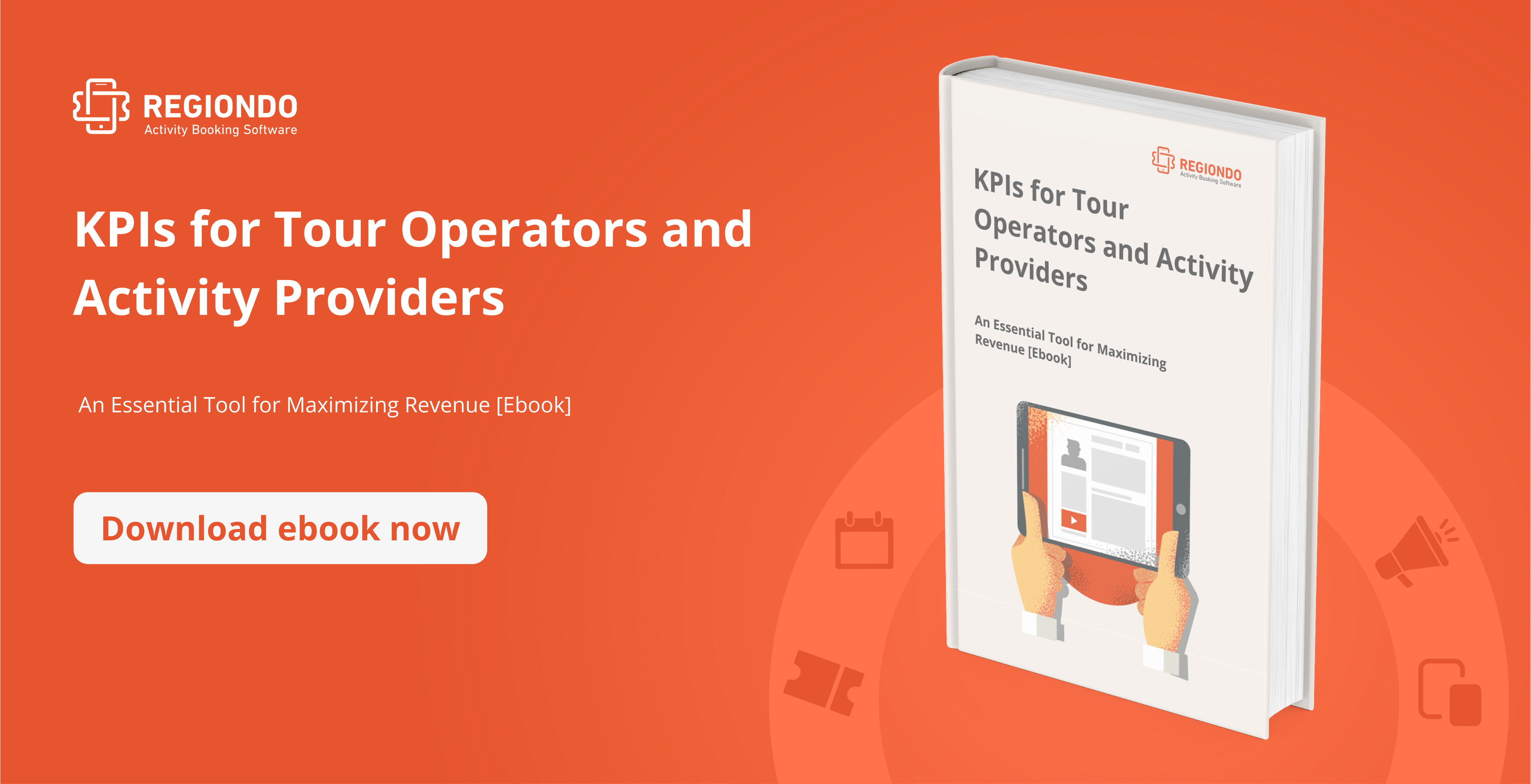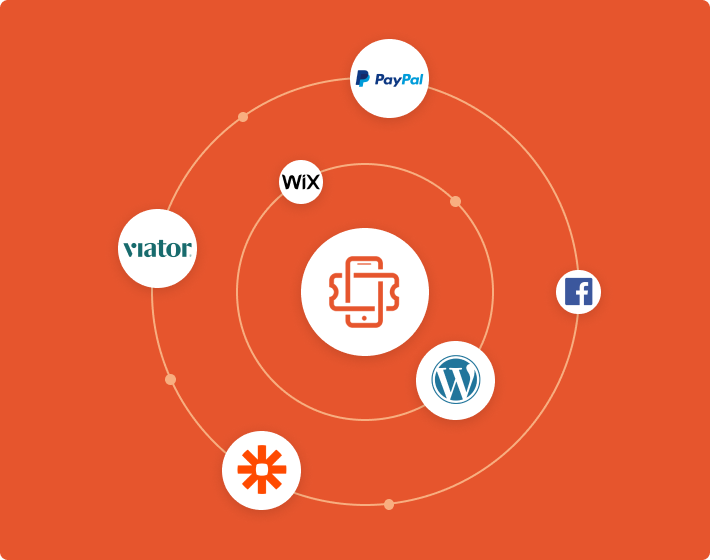The journey to selecting the right channel manager is often fraught with challenges: operators must navigate a landscape full of different options, each promising a range of features and benefits. In this guide, we’ll take a closer look at all the elements you should analyze before making such a critical choice. By understanding the nuances of this decision, you can equip yourself with a tool that not only meets your current needs, but also paves the way for future growth and success. Without further ado, let’s dive right in.

Understanding Channel Managers
At its core, a channel manager is a software solution designed to streamline the process of managing and distributing inventory of tours and activities across multiple online platforms. In other words, this tool acts as a central hub where operators can control availability, pricing and bookings from a variety of channels, including online travel agencies (OTAs), their own website and offline bookings. By automating these processes, channel managers significantly reduce the risk of overbooking and ensure smooth operations.
In the tours and activities sector, channel managers play a multifaceted role. First and foremost, as mentioned above, they facilitate real-time synchronization of inventory across all channels. This means that any change in availability or pricing is instantly reflected everywhere, eliminating inconsistencies that can lead to customer dissatisfaction. For example, if 14 seats are available for one of your experiences and you receive a booking through your official website, the channel manager will ensure that both your website and your OTA listings indicate that the updated availability is 13 seats. In addition, they provide operators with valuable insights into booking patterns, helping them make data-driven decisions to optimize their offerings and maximize revenue.

Key Features and Functionalities of a Channel Manager
When evaluating channel managers, certain features and functionalities stand out as particularly essential:
- Real-time synchronization: This is the backbone of any channel manager. It ensures that all channels are instantly updated to reflect any changes in bookings, availability or pricing.
- Wide range of integrations: A robust channel manager should integrate seamlessly with a variety of booking platforms, payment gateways, and back-office systems.
- User-friendly interface: The platform should be intuitive and easy to navigate, minimizing the learning curve and operational errors.
- Reporting and analytics: Comprehensive reporting tools that provide insight into sales, customer behavior, and channel performance are critical for making informed decisions.
- Customization and flexibility: The ability to adjust settings to meet specific business needs (such as defining different prices for different channels) is key to maximizing your profits.
- Customer support: Efficient customer support is essential, especially in an area where timely responses can make all the difference.
- Mobile: With the increasing use of mobile devices, a channel manager with a responsive interface (meaning its layout automatically adapts to screens of all sizes and shapes, from large monitors to smartphones) allows for on-the-go management, a key factor for dynamic tour and activity operators.

Assessing Your Business Needs
The first step in selecting a channel manager is to conduct a thorough assessment of your company’s unique needs. Consider the following:
- Size and scope of operations: Do you manage a medium-sized, local tour company or a large operation with multiple activities and destinations? The scale of your operation will influence the complexity and capabilities required in a channel manager.
- Type of activities offered: The types of experiences you offer – whether daily tours, seasonal events, or sports activities – determine the features you need, such as calendar management, dynamic pricing, and package customization.
- Distribution channels used: Analyze which distribution channels (OTAs, direct bookings, resellers) you currently use or plan to use, as your channel manager should integrate seamlessly with each of them.
- Technical compatibility: Think about your existing technology stack. The ideal channel manager should integrate seamlessly with your current systems, such as your CRM, payment gateway, and booking software.
- Growth plans: If you plan to expand your offerings or operations, choose a channel manager that is scalable to changing business needs.
Regiondo’s Channel Manager supports over 200 distribution channels, ranging from major OTAs like Viator and GetYourGuide to DMOs and local resellers. You can see the full list here.
How to Choose the Right Channel Manager
When selecting a channel manager, it is critical to evaluate its key features to ensure they align with your business goals.
Integration Capabilities with Existing Systems
A channel manager should integrate smoothly with your existing systems to create a cohesive operational framework.
- Compatibility with current software: Verify that the channel manager can be easily connected to your existing booking system, CRM, accounting software, and payment gateways.
- APIs: A channel manager with a flexible and robust API allows for more custom integrations to meet specific needs and enhance overall functionality.
- Data synchronization: Effective data synchronization across all platforms, including real-time updates of bookings and cancellations, is essential for accurate management.
Regiondo’s Channel Manager is natively built into Regiondo’s all-in-one booking solution, which includes a booking system, CRM, ticket scanning application and more. In addition, the platform can be easily connected to over 3,000 applications, ranging from content management systems to payment service providers. Last but not least, its powerful APIs allow you to create your own integrations and ensure that all information related to your bookings is always synchronized in real-time.
User Interface and Usability
The ease of use of a channel manager has a significant impact on your team’s efficiency.
- Intuitive design: An intuitive, easy-to-use interface reduces training time and minimizes errors.
- Customization: The ability to customize dashboards and reports to meet your team’s needs can greatly enhance the user experience.
- Mobile: With the growing need for on-the-go management, a mobile-responsive interface is highly beneficial.
As evidenced by our many positive reviews, Regiondo’s ease of use is unmatched. The platform features a responsive design that allows you to run your business from the convenience of your smartphone, plus you can customize the layout of Booking management section to display only the information that is truly relevant to your business.

Support and Training
Quality support and training are essential for maximizing the benefits of a channel manager. Look for:
- Training: Providers should offer thorough training to ensure your team can take full advantage of the system’s capabilities.
- Customer support: Efficient and accessible customer support, including live chat, email, and phone assistance, is critical to resolving issues quickly.
- Ongoing learning: Access to resources such as tutorials, step-by-step guides, and blog articles helps you stay on top of new features and best practices.
Regiondo customers are never left to fend for themselves and receive extensive training on how to use our platform. The onboarding team will walk you through every step of configuring Regiondo, while the customer success staff will proactively reach out to you to share the best strategies to streamline your operations and maximize revenue. If you need assistance, the support squad will be happy to answer any questions or solve any problems you may have. Last but not least, you will find plenty of useful tutorials on our website in the form of knowledge base articles and blog posts.
Flexibility and Scalability
Your chosen channel manager should accommodate your business’s growth and evolving needs.
- Scalability: The ability to handle increased booking volumes and expand into new markets without performance issues.
- Feature upgrades: Look for a channel manager that regularly updates its features to keep up with industry trends and user needs.
- Customization: The more you can adapt the system to your evolving business model, the more value it will provide.
The Regiondo platform is constantly being updated with new features that improve the customer experience for both tour and activity suppliers and their customers. Take a deep dive into all the changes we have introduced over the last few months by clicking here.

Cost-Benefit Analysis
A thorough cost-benefit analysis involves understanding pricing models, calculating return on investment (ROI), and weighing long-term benefits against short-term costs.
Channel Manager Pricing Models
Channel managers typically follow various pricing models, and understanding these is key to making an informed decision:
- Subscription-Based Models: Typically, providers charge a monthly or annual fee. This fee may vary based on the number of bookings, features included, or size of your business.
- Commission-Based Models: Many channel managers charge a commission for each booking made through the system.
- Tiered Pricing Structures: Vendors may offer different tiers with varying levels of features and support. Evaluate which tier best fits your needs and budget.
Calculate the Return on Investment (ROI)
To determine the ROI of a channel manager, consider both direct financial gains and indirect benefits:
- Direct financial gains: Take into account the expected increase in bookings and revenue due to expanded online presence and improved efficiency.
- Time savings: Factor in the time saved on manual tasks that can now be devoted to more strategic activities.
- Reduced overbookings and errors: Estimate the cost savings from minimizing overbookings and operational errors.
Long-Term Benefits vs. Short-Term Costs
When evaluating channel managers, it’s important to consider the long-term strategic benefits, not just the upfront costs:
- Scalability: A full-fledged channel manager like Regiondo that offers scalability and advanced features may be more cost-effective in the long run as your business grows.
- Future-proofing: Investing in a system that is continually updated and adapts to industry changes can provide lasting value.
- Improved customer experience: A channel manager that provides a better customer experience can lead to increased customer loyalty and repeat business, which are valuable long-term benefits.

Reading Reviews and Getting Feedback
Gathering feedback from a multitude of sources ensures a well-rounded view of the options available and helps identify a channel manager that has proven to work effectively among operators with similar business profiles and needs.
The Importance of Reviews and Testimonials
Reviews and testimonials provide real-world perspectives on how channel managers perform in different scenarios.
- User experience: Reviews can shed light on the channel manager’s ease of use and practicality in day-to-day operations.
- Quality of customer support: Reviews often highlight the responsiveness and effectiveness of the vendor’s customer support.
- Reliability and performance: Feedback from current users can reveal the system’s reliability during peak times and overall performance.
You can check out Regiondo’s stellar reviews on Google and Capterra.
Engaging with industry peers and participating in forums can provide deeper, more personalized insights:
- Networking events and trade shows: These are excellent opportunities to speak directly with peers who have experienced different channel managers firsthand.
- Online forums and social media groups: Platforms such as LinkedIn groups or industry-specific forums are valuable for gathering unfiltered opinions and advice.
- Case studies and success stories: Look for detailed case studies or success stories published by channel manager vendors, which often include candid customer feedback.
Find out how Regiondo has helped thousands of tour and activity suppliers save time, manage bookings and sell more tickets by reading our success stories. You can find them all here.

Making the Decision
As we have discussed throughout this comprehensive guide, choosing the right channel manager is an important business decision that requires careful consideration. This final section provides a checklist to guide you through the selection process and outlines steps for a smooth implementation.
Checklist for Choosing the Perfect Channel Manager
☐ Feature alignment: As mentioned multiple times, ensure that the features of the channel manager align with your identified business needs.
☐ Integration compatibility: Verify that the system integrates seamlessly with your existing software and tools.
☐ Cost-effectiveness: Evaluate the pricing model against your budget and the expected ROI.
☐ User reviews and feedback: Consider the insights gained from user reviews, testimonials, and peer feedback.
☐ Adaptability and scalability: Assess the channel manager’s ability to adapt to market changes and scale with your business growth.
☐ Vendor reputation and support: Check the provider’s reputation in the industry and the quality of customer support offered.
Checklist for a Smooth Implementation
☐ Develop an implementation plan: Outline a clear plan with timelines for the implementation process, including system setup, integrations, and data migration.
☐ Train your team: Arrange comprehensive training for your team to ensure they are comfortable and proficient with the new system.
☐ Thoroughly test the system: Conduct thorough testing to identify and resolve any issues before going live.
☐ Plan for data migration: If migrating data from an old system, plan this carefully to ensure no data loss and minimal disruption.
☐ Establish a support protocol: Define a protocol for ongoing support, such as who to contact for different types of issues and how to access help resources.
☐ Communicate with staff and stakeholders: Keep all relevant stakeholders, especially employees and partners, informed about the change and how it will benefit operations.
☐ Monitor and adjust after the implementation: After the implementation, closely monitor system performance and user feedback, making adjustments as needed.

Conclusion
In conclusion, selecting a channel manager should be a thoughtful and informed process. By considering the points discussed, you can make a decision that not only addresses your immediate operational needs, but also positions your business for long-term success in the ever-changing tour and activity industry.
To learn more about Regiondo, Europe’s leading booking platform with a powerful and already integrated Channel Manager, don’t hesitate to request a free demo with one of our consultants.






